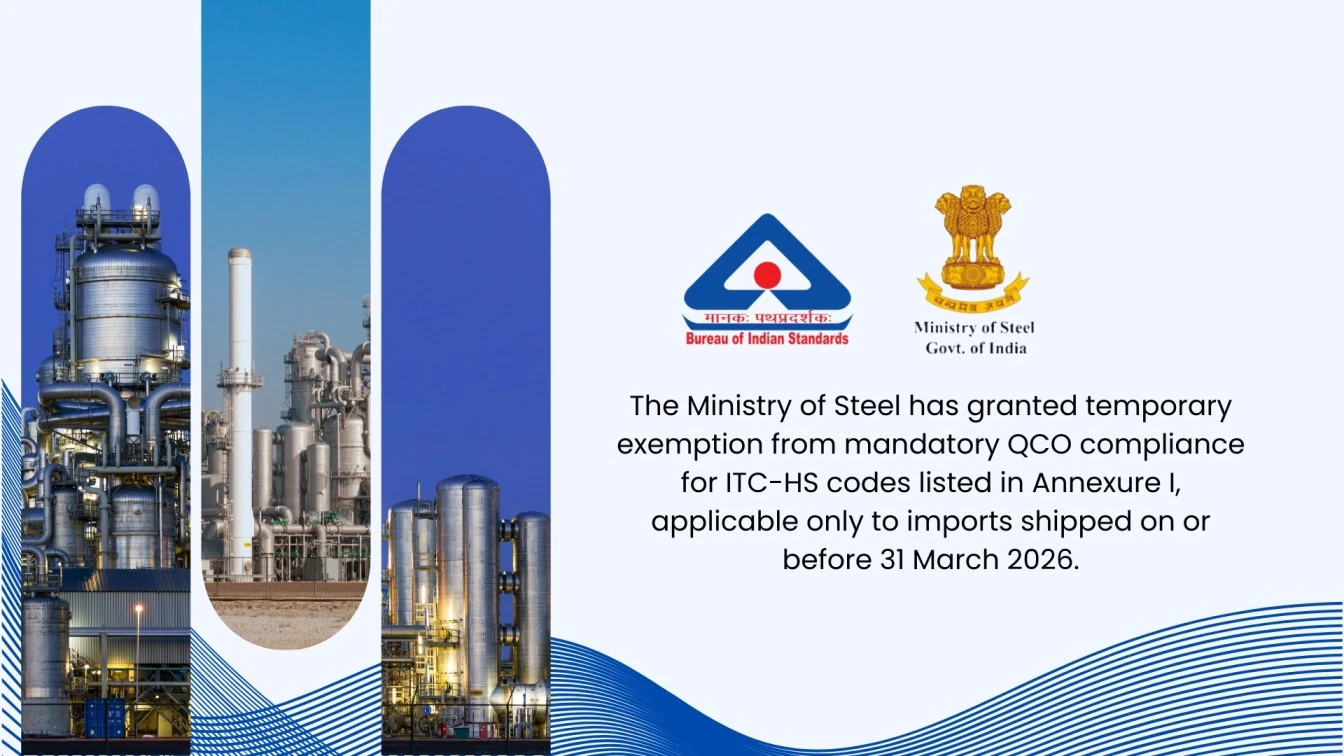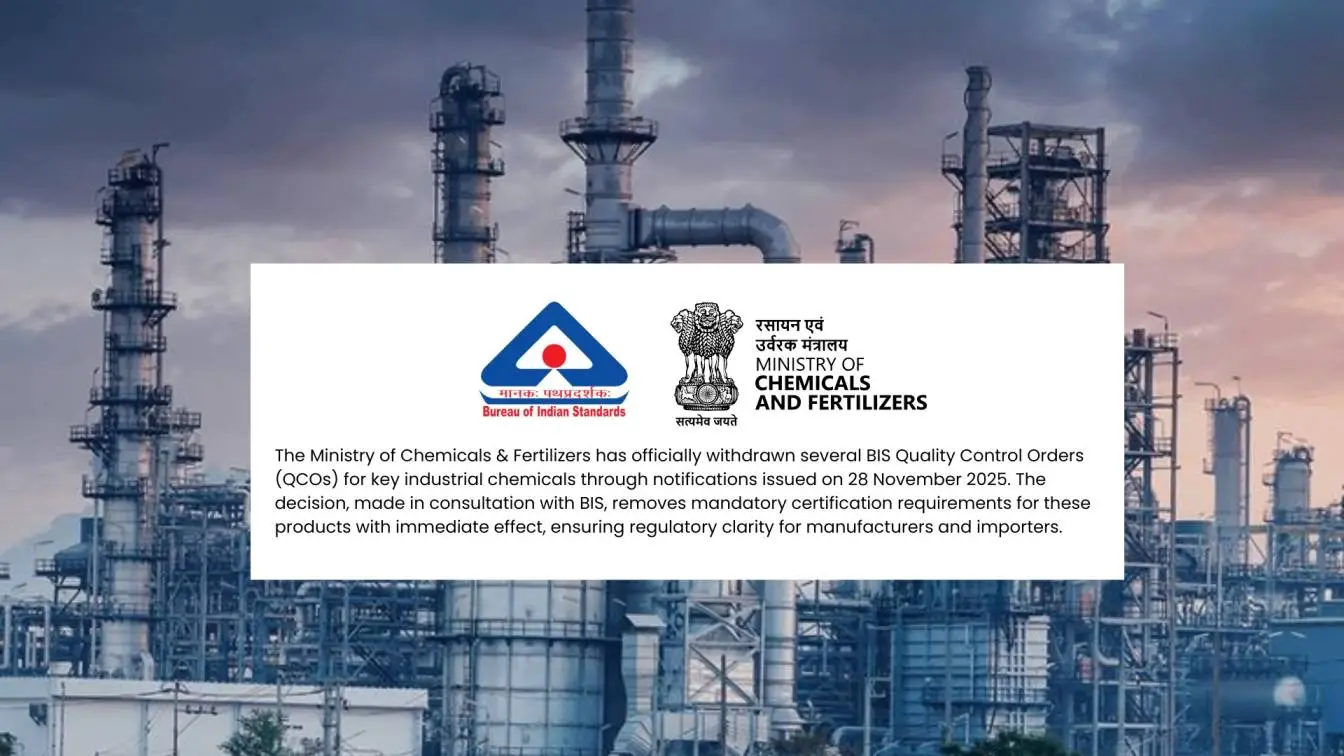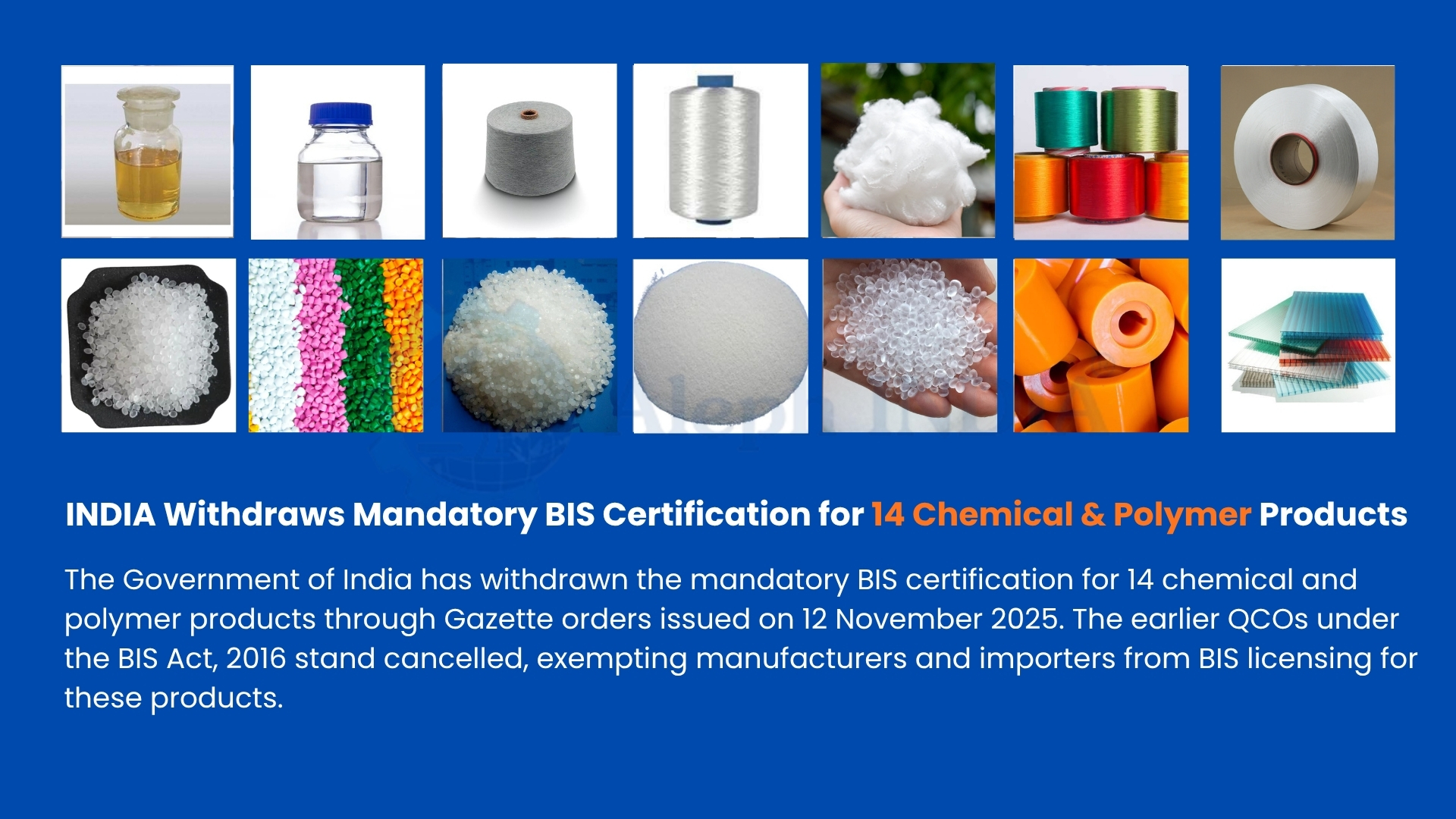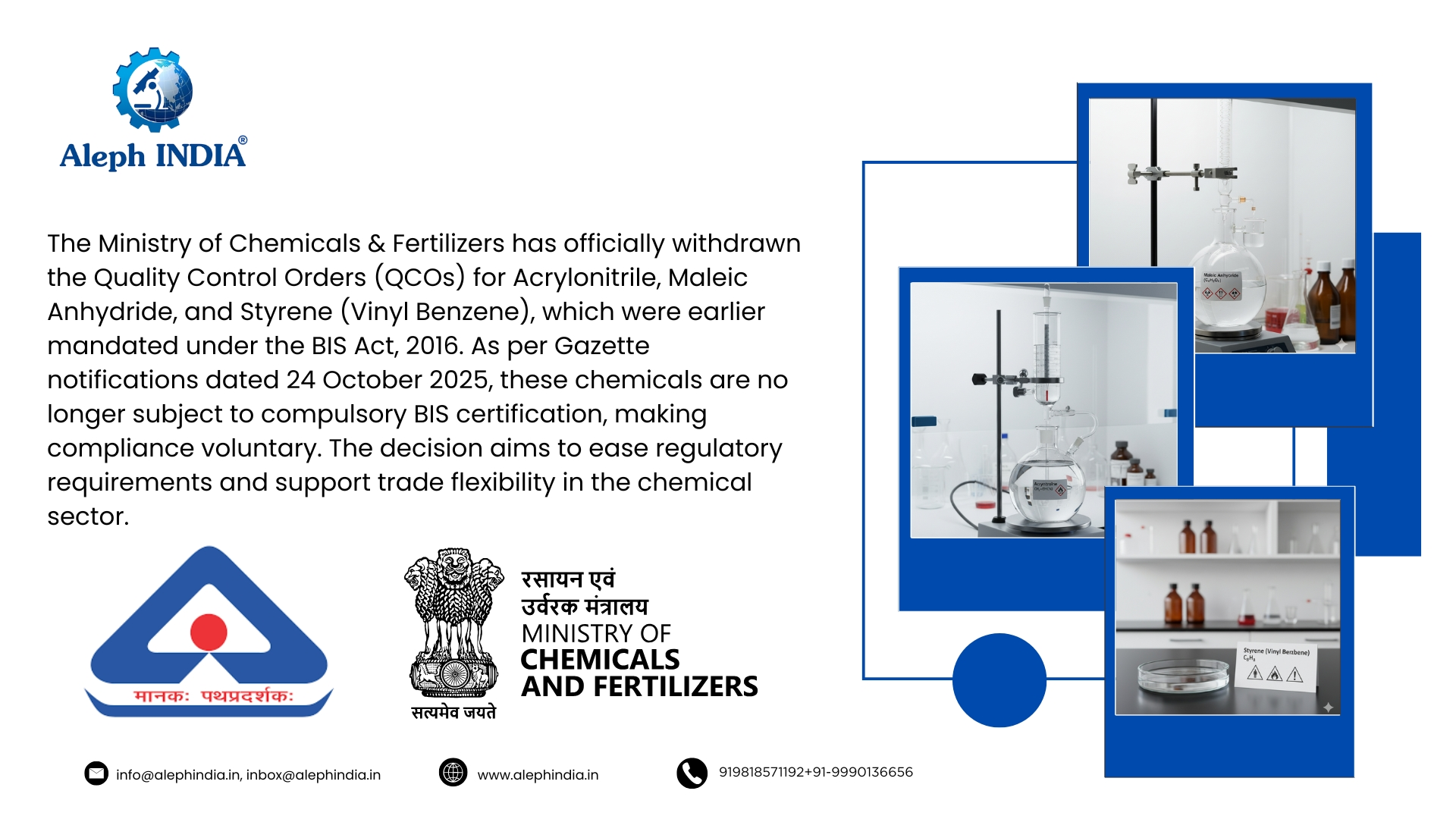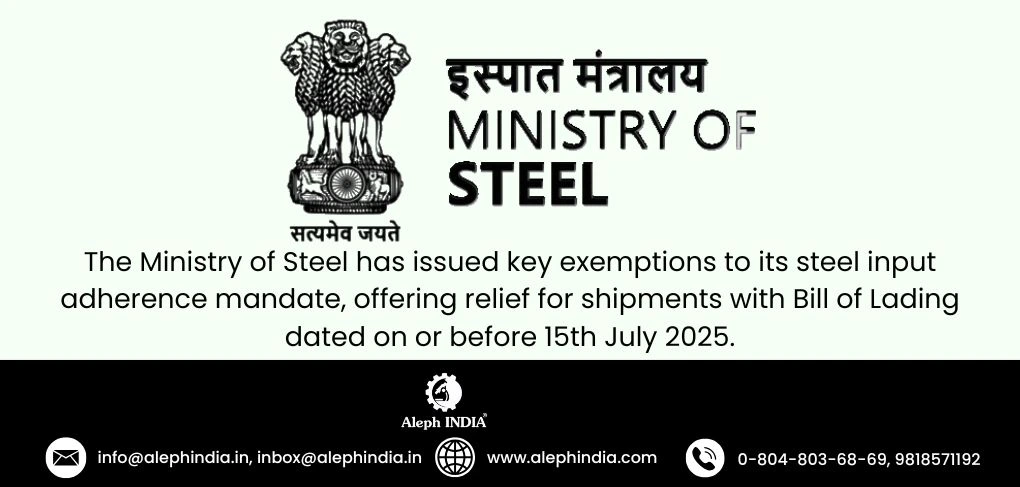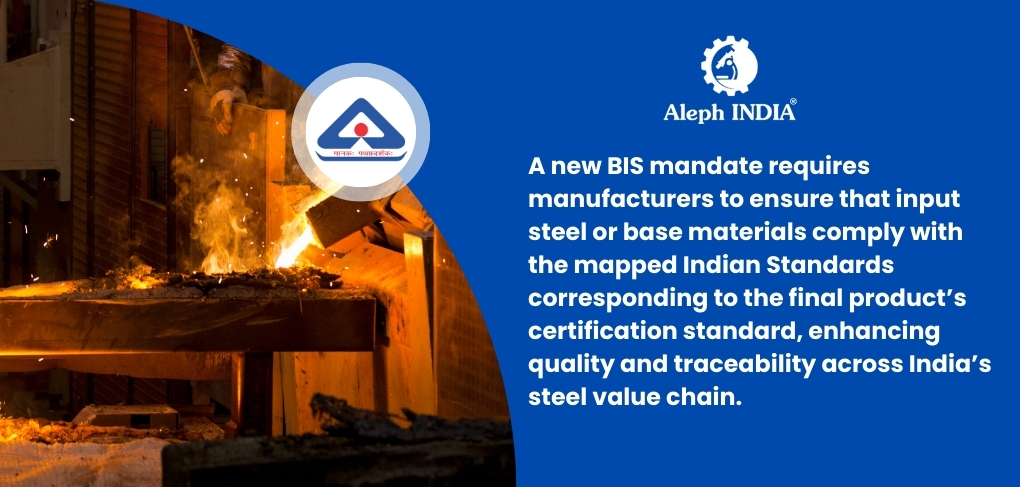- HOME
- ABOUT US
- SERVICES
-
LICENCE & CERTIFICATION
- BIS (ISI MARK) FOR FOREIGN MANUFACTURERS
- DOMESTIC PRODUCT CERTIFICATION (ISI MARK)
- BIS SCHEME X CERTIFICATION
- BIS CERTIFICATE OF CONFORMITY (CoC)
- BIS HALLMARKING
- REACH CERTIFICATION (GLOBAL)
- LABORATORY RECOGNITION SCHEME (LRS)
- WORLD MANUFACTURER IDENTIFIER (WMI) CODE
- ECO MARK
- TAC APPROVAL FOR AUTOMOBILE
- PESO CERTIFICATION
- SASO CERTIFICATION
- CDSCO CERTIFICATION
-
REGISTRATION
- BIS (CRS) REGISTRATION FOR ELECTRONIC PRODUCT
- WPC-ETA APPROVAL
- BEE CERTIFICATION
- E-WASTE MANAGEMENT (EPR)
- EPR REGISTRATION FOR PLASTIC WASTE MANAGEMENT
- EPR REGISTRATION FOR BATTERY WASTE MANAGEMENT
- EPR REGISTRATION FOR USED OIL
- LEGAL METROLOGY (LMPC)
- TEC/MTCTE APPROVAL
- CE CERTIFICATION
- UL CERTIFICATION
- ROHS LICENCE
- DRONE REGISTRATION
- MOEF LICENCE
-
AUXILIARY
- STANDARDIZATION (SCIENTIFIC) DIVISION
- TRAINING SERVICES (NATIONAL & INTERNATIONAL)
- IMPORT/EXPORT LICENCE
- FSSAI CERTIFICATION
- MSME/SSI/NSIC REGISTRATION
- ISO REGISTRATION
- BRAND REPRESENTATION
- LABORATORY EQUIPMENT AND SETUP
- TRADEMARK REGISTRATION
- MAKE IN INDIA SUPPORT
- AG-MARK LICENCE
- THIRD PARTY INSPECTION AND MONITORING SERVICES
-
- PORTFOLIO
- UPDATES
- CONTACT
- LOGIN
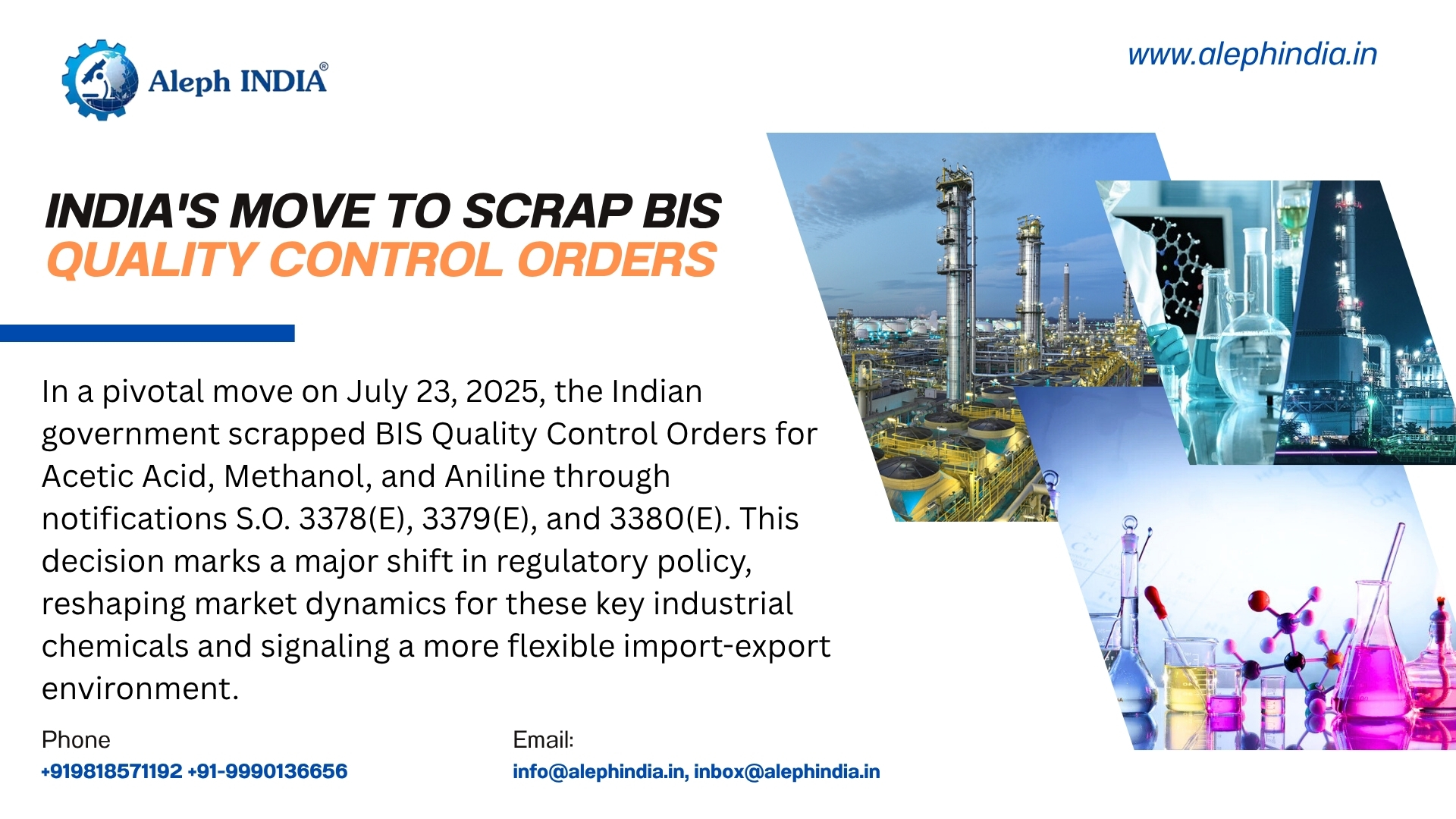
India Scraps Quality Control Orders for Acetic Acid, Methanol, and Aniline: What It Means for the Chemical Industry?
On July 23, 2025, the Ministry of Chemicals and Fertilizers, Government of India, issued notifications (S.O. 3378(E), S.O. 3379(E), and S.O. 3380(E)) to withdraw the Quality Control Orders (QCOs) for Acetic Acid, Methanol, and Aniline, originally implemented in 2019. This significant regulatory change, effective immediately upon publication in the Official Gazette, has sparked discussions across the chemical industry. But why this sudden shift, and what does it mean for stakeholders?
Key Details of the Notification
The Central Government, under the powers of the Bureau of Indian Standards Act, 2016, and after consulting the Bureau of Indian Standards (BIS), has rescinded the following:
- Acetic Acid (Quality Control) Order, 2019 (S.O. 2791(E), dated August 5, 2019)
- Methanol (Quality Control) Order, 2019 (S.O. 2791(E), dated August 5, 2019)
- Aniline (Quality Control) Order, 2019 (S.O. 2792(E), dated August 5, 2019)
These withdrawals were deemed necessary "in the public interest," signaling a potential shift in how these chemicals will be regulated moving forward.
Possible Reasons for the Withdrawal
While the official notification does not explicitly state the reasons, several factors could have driven this decision:
- Industry Feedback and Challenges: Feedback from industry stakeholders may have highlighted practical difficulties in adhering to the QCOs, such as testing delays, supply chain disruptions, or limited BIS-certified facilities. The government might be responding to these concerns to ensure smoother operations.
- Streamlining Regulatory Compliance: The chemical industry in India has long grappled with complex regulatory frameworks. The QCOs mandated strict BIS standards, which, while ensuring quality, may have increased compliance costs and administrative burdens for manufacturers and importers. Withdrawing these orders could aim to simplify processes and boost ease of doing business.
- Shift to Alternative Regulatory Mechanisms: The withdrawal might indicate a move toward new or revised quality control frameworks, possibly more flexible or industry-specific standards, to replace the 2019 orders.
Implications for the Chemical Industry
This regulatory shift could have far-reaching effects:
- Manufacturers and Importers: Reduced compliance requirements may lower operational costs, but companies must stay vigilant for any new regulations replacing the QCOs.
- Quality Assurance: Without mandatory BIS standards, there’s a risk of quality variations unless voluntary standards or market-driven certifications fill the gap.
What’s Next?
Industry players should closely monitor updates from the Ministry of Chemicals and Fertilizers and BIS for any forthcoming guidelines or replacement frameworks. Engaging with industry associations and regulatory bodies will be key to navigating this transition. Additionally, maintaining high-quality standards voluntarily will be crucial to sustaining consumer trust and global competitiveness.
Conclusion
The withdrawal of the QCOs for Acetic Acid, Methanol, and Aniline marks a pivotal moment for India’s chemical
industry. While it opens opportunities for growth and flexibility, it also calls for proactive measures to ensure quality
and compliance in a potentially less regulated environment. What are your thoughts on this change? Let’s discuss
how this could reshape the industry landscape!
Stay tuned to https://alephindia.in/qco-orders-and-implementation-dates.php for more updates on regulatory changes
and their impact on the chemical sector.


